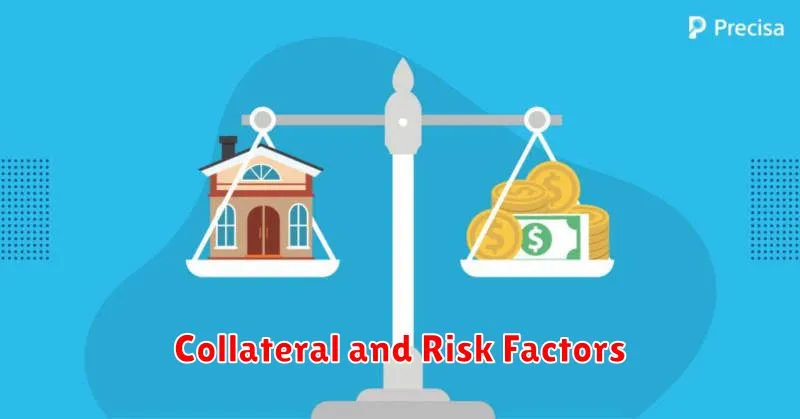Securing a business loan can be a pivotal step in your company’s growth, but navigating the application process can feel daunting. Understanding what lenders prioritize is crucial for maximizing your chances of approval. This comprehensive guide delves into the key factors lenders assess when reviewing your business loan application, offering insights into strengthening your submission and increasing your likelihood of securing the necessary funding for your business. We’ll explore everything from your credit score and financial statements to your business plan and management team, providing actionable advice to help you present a compelling case for your loan request.
From the perspective of a lender, a strong business loan application showcases not only financial stability but also a well-defined business strategy and a capable management team. This article will equip you with the knowledge to address each aspect of the application effectively, significantly improving your prospects of obtaining the financing you need to achieve your business objectives. We’ll examine the importance of demonstrating revenue potential, outlining a robust cash flow projection, and highlighting the value proposition of your business. By understanding the criteria lenders use, you can prepare a truly persuasive loan application that significantly enhances your chances of success.
Credit History: Personal and Business
Lenders place significant emphasis on your credit history when evaluating a business loan application. This assessment considers both your personal and business credit profiles, as they offer a comprehensive view of your financial responsibility and risk level.
Your personal credit score is often the first thing lenders examine. A strong personal credit history demonstrates your ability to manage debt and meet financial obligations. A low score, conversely, can significantly impact your chances of securing a loan, even if your business financials appear healthy. Lenders view personal credit as an indicator of your overall financial prudence and reliability.
Equally important is your business credit history. If your business has been operating for a while, lenders will analyze your business credit reports from agencies like Dun & Bradstreet or Experian. This report reveals your business’s payment history, outstanding debts, and overall creditworthiness. A consistent record of timely payments and responsible borrowing significantly strengthens your application.
The weight given to personal versus business credit varies depending on factors such as the age and financial standing of the business. For newly established businesses, lenders might rely more heavily on personal credit, while more established businesses may see a stronger emphasis on their business credit profile. It’s crucial to maintain a positive credit history across both personal and business spheres to maximize your chances of loan approval.
Negative marks on either your personal or business credit reports, such as late payments, bankruptcies, or collections, can severely hinder your loan application. Addressing any negative items proactively and demonstrating a commitment to improving your creditworthiness can be beneficial in mitigating the impact of these past issues.
Business Plan Strength and Clarity

A well-structured and clear business plan is paramount to securing a business loan. Lenders scrutinize this document to assess the viability and potential profitability of your venture. A strong business plan demonstrates your understanding of the market, your target audience, and your competitive advantage.
Clarity in presentation is crucial. The plan should be concise, easy to understand, and free of jargon. Lenders are busy professionals; they need to quickly grasp the key aspects of your business and its financial projections. Avoid overly technical language or complex financial models that may obscure the core concepts.
Strength lies in the details. Your plan should provide a comprehensive overview of your business, including your executive summary, company description, market analysis, organization and management, service or product line, marketing and sales strategy, and financial projections. Each section should be well-researched and supported by data and evidence.
The financial projections section is particularly important. Lenders carefully examine your revenue forecasts, expense budgets, and cash flow statements to assess the financial health and sustainability of your business. Realistic and well-supported projections demonstrate your understanding of the financial aspects of your business and increase your chances of loan approval. Inconsistencies or unrealistic numbers will raise red flags.
Furthermore, a strong business plan showcases your understanding of risks and your strategies for mitigating them. Acknowledging potential challenges and outlining contingency plans demonstrates preparedness and responsible business management, which lenders highly value.
In summary, a strong and clear business plan acts as a roadmap for your business and a powerful tool for convincing lenders of your creditworthiness and the viability of your venture. It’s a critical component of a successful loan application.
Cash Flow and Profitability Reports
Lenders place significant emphasis on a business’s cash flow and profitability when assessing loan applications. These reports provide crucial insights into the financial health and sustainability of the business, demonstrating its ability to repay the loan.
Cash flow statements illustrate the movement of cash in and out of the business over a specific period. Lenders analyze this to understand the business’s ability to meet its short-term obligations, including loan repayments. A strong and consistent positive cash flow is a key indicator of financial stability and reduces lender risk.
Profitability reports, such as income statements, reveal the business’s revenue, expenses, and net profit or loss. These reports showcase the business’s ability to generate profit and its overall financial performance. Consistent profitability demonstrates a sustainable business model and increases the confidence of lenders in the applicant’s repayment capacity.
Lenders will scrutinize key metrics derived from these reports, such as net profit margin, operating cash flow, and the ratio of cash flow to debt. These metrics offer a comprehensive view of the applicant’s financial strength and the viability of their loan request. Inaccurate or incomplete financial reporting can immediately raise red flags and jeopardize the loan application.
The presentation of cash flow and profitability reports should be clear, concise, and easy to understand. Using standardized accounting practices and professionally prepared reports significantly enhances the credibility of the application and increases the likelihood of approval. Accurate and transparent financial data are paramount to securing favorable loan terms.
Collateral and Risk Factors

When assessing a business loan application, lenders carefully evaluate the collateral offered as security for the loan. This collateral acts as a safeguard, minimizing the lender’s risk in case of loan default. Common types of collateral include real estate, equipment, inventory, and accounts receivable. The value and liquidity of the collateral are crucial factors; lenders will conduct thorough appraisals to determine their market worth and how easily they can be converted into cash.
Beyond collateral, lenders delve into a comprehensive analysis of risk factors associated with the loan application. This involves a detailed examination of the borrower’s financial history, including credit scores, debt-to-income ratios, and cash flow projections. A strong financial track record, demonstrating consistent profitability and responsible debt management, significantly reduces perceived risk.
Industry trends and market conditions also play a significant role. Lenders investigate the overall health and stability of the borrower’s industry, considering factors such as competition, economic forecasts, and regulatory changes. A loan application submitted during an economic downturn or within a volatile industry may face increased scrutiny and potentially higher interest rates.
The business plan itself is another key area of assessment. Lenders carefully review the plan’s feasibility, considering its market analysis, competitive strategy, management team’s experience, and projected financial performance. A well-structured and realistic business plan inspires confidence, decreasing the perceived risk associated with the loan.
Finally, the management team’s qualifications and experience are vital considerations. Lenders seek evidence of capable leadership with a proven track record of success. A strong management team enhances the likelihood of successful loan repayment, thus mitigating risk for the lender.
Industry Type and Experience Level
Lenders carefully assess the industry type of your business when reviewing a loan application. Some industries are considered inherently riskier than others due to factors like market volatility, competition, and regulatory hurdles. Businesses in stable, established industries with proven profitability often receive more favorable consideration.
Your experience level, both in your specific industry and in business management generally, is a significant factor. Lenders want to see evidence of your ability to successfully manage a business. A strong track record, demonstrated through financial statements and operational success, significantly increases your chances of approval. Conversely, a lack of experience or a history of business failures can raise concerns and reduce your chances of securing a loan.
The interplay between industry type and experience level is crucial. For example, a business operating in a high-growth but volatile industry might need to demonstrate exceptional management experience to offset the inherent risks. Conversely, a seasoned entrepreneur in a more stable industry might face less stringent requirements.
Financial projections are essential in demonstrating your understanding of your industry and your ability to manage your business effectively. These projections should be realistic, well-researched, and aligned with industry trends and benchmarks. They allow lenders to assess the long-term viability of your business and the likelihood of loan repayment.
In summary, both your industry and your experience significantly impact a lender’s assessment of your loan application. A strong combination of a favorable industry profile and substantial management experience increases your likelihood of securing financing.
Loan Purpose and Repayment Strategy
Lenders meticulously scrutinize the purpose of your requested loan. A clearly defined and well-articulated purpose demonstrates foresight and planning. Vague or unclear objectives raise red flags, suggesting a lack of preparedness and potentially increasing the perceived risk for the lender.
A compelling loan purpose often involves a specific, measurable, achievable, relevant, and time-bound (SMART) goal. For example, instead of stating “to improve the business,” a stronger application will specify “to purchase three new delivery vehicles to expand our service area by 25% within the next year, increasing revenue by 15%.” This level of detail reassures lenders that you have a solid plan and understand the potential return on investment.
Equally crucial is your repayment strategy. Lenders need confidence in your ability to repay the loan according to the agreed-upon terms. This requires a detailed financial plan showcasing your projected cash flow, illustrating how loan repayments will be integrated into your existing financial operations without disrupting your business’s overall stability.
A robust repayment strategy includes a realistic projection of future income, factoring in potential market fluctuations and unexpected expenses. It also demonstrates a comprehensive understanding of your existing debt and other financial commitments. Consider including a sensitivity analysis showing how your repayment plan would hold up under various economic scenarios.
Transparency is paramount. Clearly outlining any potential risks associated with your business and how you plan to mitigate them will bolster your credibility and significantly impact the lender’s assessment of your application. A well-defined contingency plan addressing unforeseen challenges adds further reassurance regarding your preparedness and commitment to repayment.

